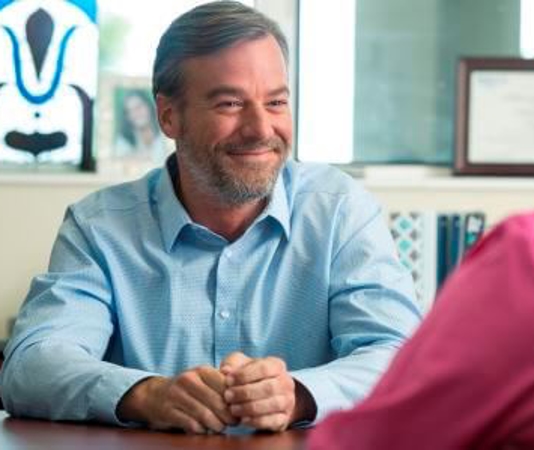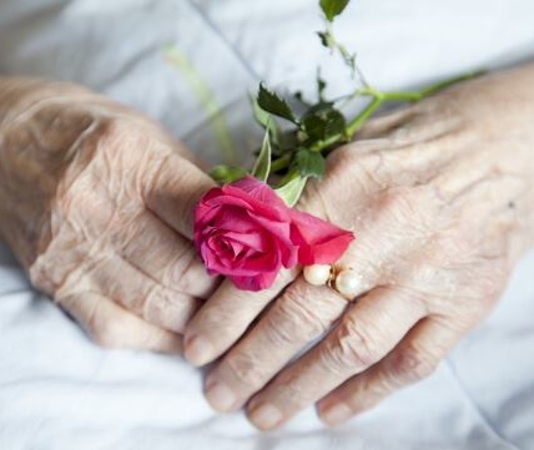While statistics show that the average family caregiver is a 49-year old woman helping out her parent or parent-in-law, there is data showing that there are a growing number of young adult caregivers who are choosing between college or starting a family and caring for a loved one.
The National Alliance for Caregiving and AARP recently released a study profiling today’s caregivers and found that a quarter of America’s estimated 43.5 million family caregivers are between the ages of 18 and 34 and about 50-50 between male and female.
Meet Christina M. Fletcher
One such millennial caregiver is Christina M. Fletcher, a single mom and nursing student who moved back home at age 27 to care for her parents.
“I hadn't started thinking about my parents needing help, because they aren't elderly.” Ms. Fletcher said in an interview. “I think a difference for me would be that there was no preparation, not even mentally. There wasn't a discussion between me and my siblings about what we would do if mom or dad needed assistance because they were getting older. We were all thrown into it blindly.”
A series of events in her family snowballed—her father had a massive heart attack that left him with limited capacity and her mother has arthritis, atherosclerosis and an undiagnosed mental illness since having a “break from reality” following the death of her youngest daughter—and that’s when Ms. Fletcher’s life changed.
“When my family needed the help, I had already started to settle down in Wisconsin,” she said. “I was raising my daughter and going to school and working. It wasn't an easy choice or an easy step to move back to Ohio.”
While the AARP and NAC study showed half of family caregivers felt that they had no choice in becoming a caregiver, Ms. Fletcher is able to see the positives in the choice she made to care for her parents.
“My daughter loves having her grandparents here,” she said. “I love having the help when I need to study or work on school work. My daughter gets to see firsthand how multi-generational families function and she learns how to be compassionate and help to take care of her grandparents.”
However, she is realistic and said that it wasn’t an easy adjustment. “There was--and still is--resistance from my parents because they don't want to admit limitations, but as I said before I would rather be here helping them, knowing that they're getting the help they need,” she explained. “I can't picture my life being any other way than it is now. We all make it work.”
Meet Rashelle Quinn
Rashelle Quinn, 22, learned about being a family caregiver as a 3-year old child after her father suffered severe brain damage in a car accident. As she pursues a college degree in nursing, she also chooses to be her father’s caregiver along with her Mom.
“Being a caregiver has not so much changed my life plans as it has formed my life plans,” she said. “I have been helping to take care of my father since I was a child – thus taking care of people was natural to me. I currently work as a Practical Nurse and am in the process of getting my Bachelors of Nursing where I will continue with nursing. Becoming a caregiver has not really changed my life plans but it has reinforced the desire to take care of people for the rest of my life.”
Coping & Support
When friends may have been getting engaged, graduating from college, shopping for their first apartment or just enjoying life with few responsibilities, millennial caregivers like Ms. Quinn and Ms. Fletcher were in the thick of juggling school, work, and caregiving all at once. One thing they have in common is that they aren’t actively seeking support as caregivers.
“A few of my friends are caregivers,” Ms. Fletcher said. “We don't necessarily go to each other for support because we all have our own things we're taking care of. For instance, one of my close friends is a registered nurse that works full time and has a special needs son that is constantly in the hospital and has round the clock care at home. Every few months we get together and the last thing we want to talk about is what's going on at home.”
In fact, her busy life is a kind of blessing for her. “Since I am still full time in school, I don't have a lot of free time to worry about myself,” she said. “Support comes from classmates, siblings, random strangers I can strike up a conversation with or funny animal YouTube videos.”
Ms. Fletcher and Ms. Quinn were two of three caregivers awarded $1,500 from Caring.com, which sponsors a financial aid scholarship for students who are also caring for a loved one (the student must be attending an accredited U.S. university or college).
“When in college, it can be difficult to look around and see that so many college students are living care-free lives,” Ms. Quinn said matter-of-factly.
While Ms. Quinn said that she finds happiness in caregiving because she sees it as her purpose, she does not know any other family caregivers her age who she turns to for support. Instead, she leans on family and close friends when she is in need of care for herself.
“I would say that it is not beneficial to compare your lives with those of your non-caregiving friends,” she said. “Often times, we have more responsibility and cannot participate in as many activities as those around us – but don’t compare your life with theirs.”
For any caregivers, Ms. Quinn simply suggested empathy. “Take a moment during the day and really look at the person you are caring for,” she advised. “Think of their thoughts and feelings and appreciate them as a person – this will help keep you in love with what you are doing.”





